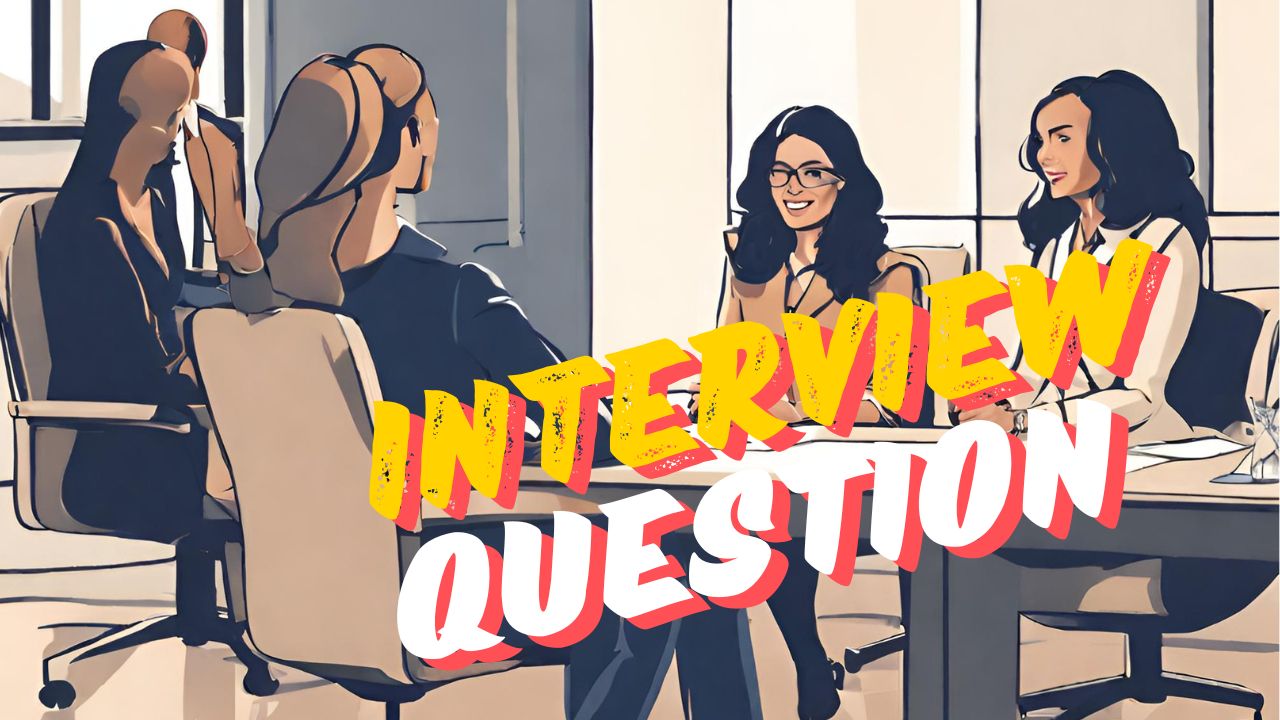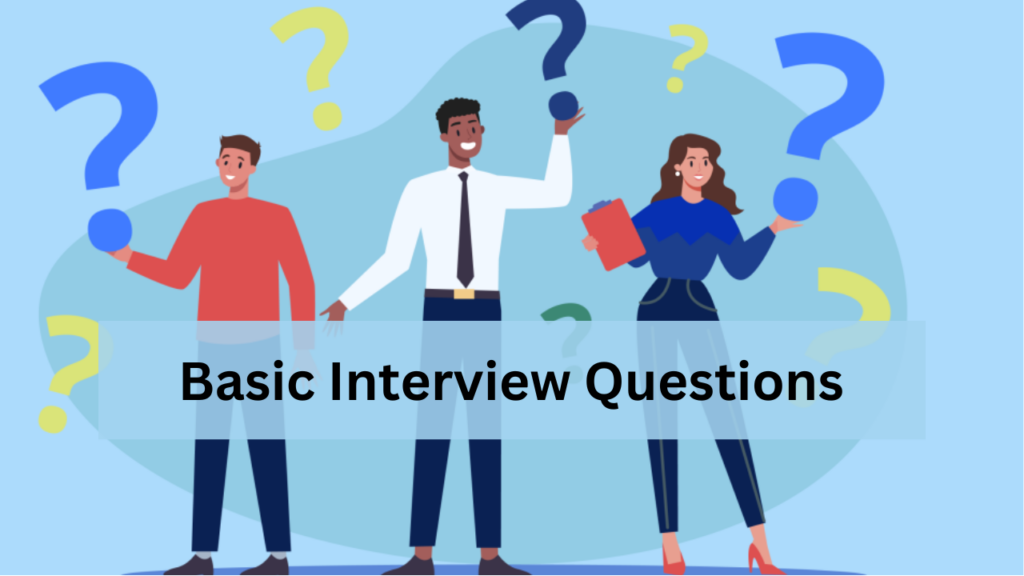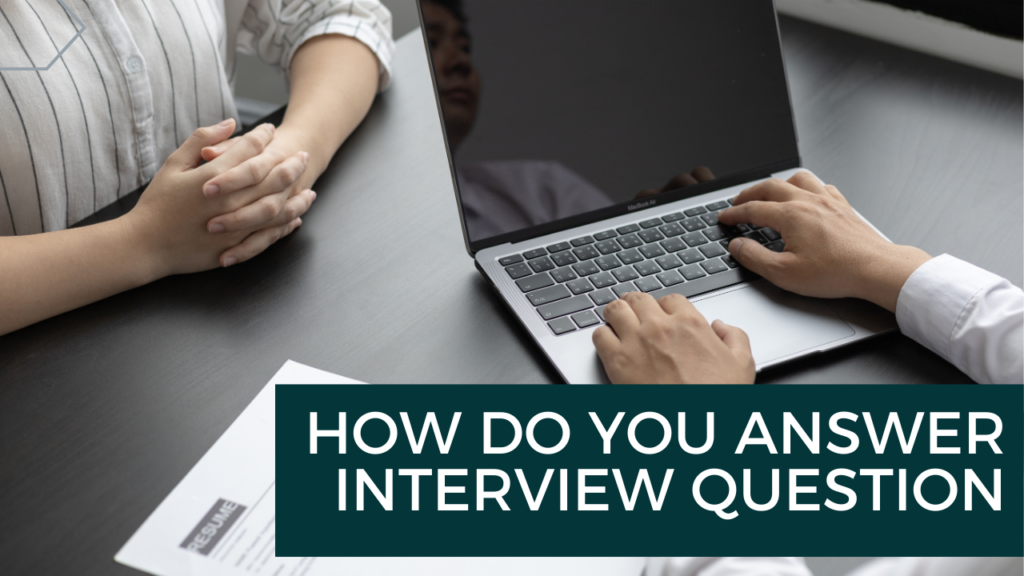Securing a job interview is an achievement! It’s worth congratulating you on, especially if it’s one you’ve always wanted to have. Before anything else, a “congratulations” is in order. Second, let’s consider how to further enhance your interviewing skills by preparing.
When we say prepare, this might be about how you could strategize to answer the fundamental interview question that could be thrown at you by the hiring manager.
You may also want to collect timely anecdotes from prior work experiences. It’s always good to have compiled stories about your career highlights or achievements, which will eventually aid you in answering the basic interview questions more thoughtfully than if you were telling a story. This will show your interviewer or the hiring manager that you prepared well. At the same time, let’s not forget to compile a list of thoughtful, significant interview questions that interest you, which you could ask the interviewer or hiring manager if they ask you, “Do you have questions for me?”.
Having several questions to ask them and to do so will leave a good impression because through your questions, you will show your potential employer that you did your research and that you feel genuinely pleased to be considered for the interview since you want to be part of the said company. This will give them the means to see if the job would be a good fit for them and be part of the company or organization.
This comprehensive guide delves into the art of crafting practical basic interview questions. We present a curated list of the most impactful questions to ask during an interview, helping you gain valuable insights into candidates’ qualifications and potential. Furthermore, we explore strategies for preparing your questions and selecting the most relevant ones based on the specific role and company culture. Additionally, we provide practical tips on how to ask basic interview questions during the interview to create a positive and informative experience. Lastly, we outline questions that are best avoided to maintain professionalism and respect for candidates’ privacy.
A wide range of basic interview questions can be posed during an interview. Some questions may be industry-specific. For instance, questions about outdoor working conditions might be relevant in a manual labor role. Other basic interview questions have a broader scope. When selecting basic interview questions, factors such as training, the role, the company, and the interviewer should be considered to ensure a comprehensive discussion.
Here are some tips on how to prepare for basic interview questions to ask in an interview:
-
Research the company and the position.
Before the interview, take some time to research the company, the position you’re applying for, and the industry. This will help you identify relevant basic interview questions to ask. Some specific things to look for include:
- The company’s mission, values, and culture
- The specific responsibilities and expectations of the position
- The company’s recent news and developments
-
Identify your goals.
What do you want to learn from the interview? Are you looking for more information about the position’s day-to-day responsibilities? Are you interested in learning about the company’s plans for the future? Once you know what you want to learn, you can start developing specific questions.
-
Brainstorm a list of basic interview questions.
Once you understand the company and position well, start brainstorming a list of questions to ask. Some common questions include:
- What are the company’s plans for the future?
- What are the opportunities for career growth within the company?
- What is the company’s culture like?
- What are the expectations for the first 90 days in the position?
-
Prioritize your questions.
Once you have a list of the basic interview questions, prioritize them in order of importance. This will help you focus on the most important questions during the interview.
-
Practice your questions.
Once you have prioritized your questions, practice answering them out loud. This will help you feel more confident during the interview and ensure you can clearly articulate your questions.
-
Be respectful of the interviewer’s time.
When asking your questions, be respectful of the interviewer’s time. Avoid asking wordy or overly detailed questions. Instead, focus on asking concise, specific, basic interview questions to give you the necessary information.
-
Listen carefully to the answers.
Listen carefully when the interviewer answers your questions, and ask follow-up questions if necessary. This shows you’re engaged in the conversation and interested in the interviewer’s words.
Though there are many sources on the internet, it’s still best to narrow down your possible list of basic interview questions to ask during your job interview. Now, how do we go about choosing which questions to ask? Try to use these steps to help you establish which questions to ask:
- Make sure to jot down notes
Use your prepared basic interview question sheet to record critical points during the interview. The interviewer or hiring manager may occasionally address many of your inquiries throughout the conversation. This can occur while they introduce themselves, discuss the company, elaborate on the position, and respond to your answers to their basic interview questions. Be sure to jot down the answers to any additional questions during the interview. - Mark your favorites
Throughout the interview, mark or star the questions that pique your curiosity the most. By the end of the session, aim to have around five remaining questions to ask the interviewer. If you have significantly more, prioritize the ones you’re most eager to learn about and ask those after the interview. - Write a follow-up email
If you think your questions may not be asked or if you might have additional questions to raise, consider sending a follow-up email to the person who interviewed you or to the hiring manager. Sending a thank you email to them is good practice and signals utmost professionalism. When you do this, you can also add the questions that weren’t asked or even add those that you really want them to answer.
Are there any tips for those who haven’t had the opportunity to experience a job interview or to ask their interviewers questions? Here are some that might help:
- Keep them relevant.
Ask them questions aligned to the interview to uncover more pertinent information about the job role and the company. - Be direct.
Your interviewer does not expect a candidate to have anything to ask, so it’s best to have at least a couple of questions prepared. Doing so shows them that you are interested in the organization and the job role. - Show what you’ve researched.
Mention any relevant or significant research to show you’ve taken action to learn more about the company and the job you are applying for. - Ask questions naturally.
In most interviews, hiring managers provide opportunities for candidates to ask questions. However, asking questions related to the discussion throughout the interview is also expected and acceptable. Doing so demonstrates your engagement and interest in the job role.
In the interview process, you can ask the interviewer or the hiring manager numerous insightful questions. However, it’s crucial to be mindful of specific questions that should be avoided. To ensure a successful interview, review these questions and refrain from including them in your following conversation:
Questions about salary and benefits
It’s generally advisable to hold off on asking these questions until after you’ve received a job offer rather than bringing them up during the job interview itself, so avoid the following:
- How much is the pay for this position?
- Could you specify the benefits the company provides?
- When is payday in this company?
- Are we provided any bonuses?
Questions that start with why
Questions beginning with “why” can sometimes be perceived as aggressive or confrontational, regardless of your true intention. If you genuinely seek an answer, consider rephrasing your questions to avoid misinterpretation. Do not ask the following questions:
- Why did the company let go of several employees last year?
- Why are you hiring at such a fast pace?
- Why is this role open?
Questions about individual preferences
Refrain from asking situation-specific questions about the job during the job interview. These questions will be addressed more appropriately once the company has extended an official job offer. Avoid asking the following questions:
- Do you allow employees to work from home?
- Is there a way to leave early if I need to pick up my kids?
- If I arrive early to work, can I leave early?
- Could I have my own office space to decorate?
- I plan to go on vacation next month; would that be okay?
While it is true that interviews may be deemed intimidating by a certain number of people, in reality, they work both ways. The interview process is pro-employer and pro-applicant. It gives both parties the opportunity to gauge if they are the right fit for each other and gain insight into each other. This includes the applicant’s chance to ask questions relevant to the position and the organization.
Want us to hone your skills so you can give the best responses to several challenging questions? Reach out to us at www.interview-expert.com or call us at 859-572-4499. Let’s journey towards your interview success!


